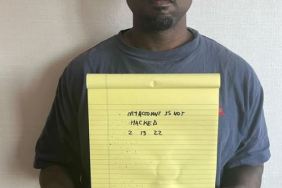I’ve been trying at length to write a review of The Kid with a Bike that focuses on Jean-Pierre and Luc Dardennes’ sensitive portrayal of youth, abandonment and powerful yearning for father figures. The reason why I’ve been having trouble has nothing to do with the film. I just don’t like kids. I say this not to bare my soul or elicit grumpy nods of approval from cynical jerkwads like myself, but to illustrate the power that The Kid with a Bike has to make one examine their views on childhood in a fresh light. Of course my prejudice remains resoundingly intact, but my conviction has been thoroughly diminished. I still don’t like being around them (they’re noisy and rude and they smell) but kids don’t deserve my ire. Unless they’re talking in the theater of course.
It’s a hard life for Cyril Catoul, played with rage and vulnerability by Thomas Doret. He’s been abandoned at a state-run foster home by his father without so much as an explanation, or even his bike. He turns into a pint-sized Steve McQueen, escaping every chance he gets to try to track the man down, assuming there’s been some sort of mistake. Along the way he runs into, latches onto, and has trouble letting go of Samantha, a hairdresser played by High Tension’s Cécile De France. It’s unclear why Samantha takes care of Cyril on the weekends. When he asks her for an explanation, she says it’s because he asked. She responds to his vulnerability while the rest of their community, and the world at large, demands only his strength.

Eventually Cyril finds his father (the trailer reveals that much), and his reasons for abandoning his son are uncovered. The reasons are refreshingly direct, understandable and selfish. Finally forced to confront his perceived isolation – and utterly failing to notice that Samantha proves his assessment wrong – Cyril falls in with a charismatic father figure who would be almost Dickensian were it not for his affection for Resident Evil. Sure enough, Cyril is tempted down “the wrong path,” which the Dardennes depict with a straightforward seriousness unusual to such a familiar story development. That directness fuels The Kid with a Bike from start to finish. It’s not trying to tell a unique concept or mess with a formula. The point is so universal that twisting and turning the plot would only detract from its universality.
The film’s unexpected finale forced me to acknowledge, and more importantly to remember, that it’s hard out there for a kid. The outbursts, emotions and just plain noisiness that infuriate me today are all symptoms of an evolving humanity that need sympathy from responsible parental figures, if not necessarily parents, to reach healthy fruition. The Kid with a Bike delicately bridges the gap between mindsets that grows ever wider with time, thrusting adults into the psychology of a child, pushing them into a confrontation with their own self-involvement, regardless of what motivates it. It’s a quiet film that speaks volumes, which affected me on a deeply personal level. I still don’t like kids, or at least the vast majority of them. But at least I now know that it’s because I’m a total d*ckhead.







